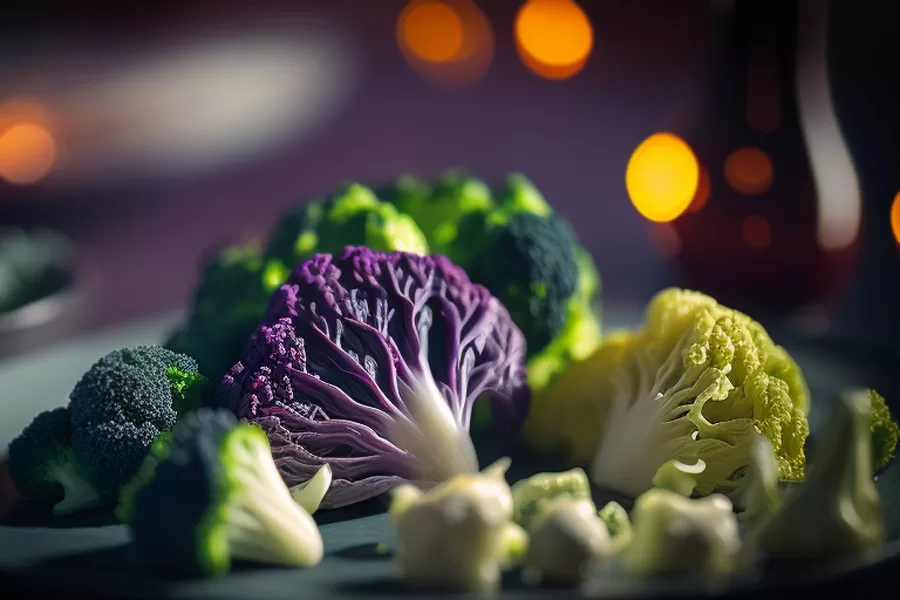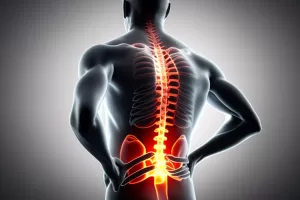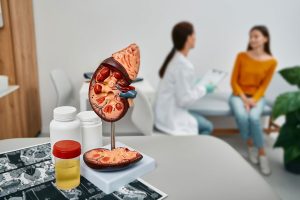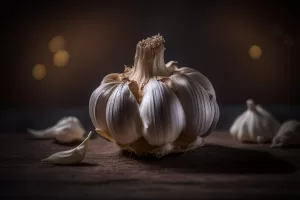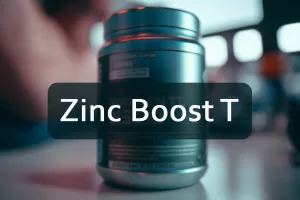The prostate gland does a tremendous job in the body. It produces semen fluid, converts testosterone into its active form, DHT, and helps to control ejaculation and urination. Unfortunately, it is difficult for an AMAB person to escape common prostate health, such as:
- Benign prostate hyperplasia (BPH) is an enlarged prostate. It causes many urinary symptoms, from frequent urination to difficulty urinating and pain. BPH gets more probable with age, affecting about half of men over 50 and 90% of men over 80.
- Prostate cancer is diagnosed in 1 man in 8 and may prove lethal. When detected early and treated accordingly, it can be cured: this is why it is essential to have regular screenings and check-ups with your family doctor or a urologist.
So the best you can do for your prostate gland is to try to maintain a healthy lifestyle and to switch to a diet with natural foods for prostate health included in it.
Foods for Prostate Health
Why are some products considered the best food for the prostate? It is connected to the composition. Some foods are rich in chemical compounds associated with reducing prostate cancer risk. It is yet pretty uncharted territory for medical science where the researchers operate with possibilities rather than confident conclusions, but making your nutrition routine more wholesome never hurts.
Let us look at some delicious foods to eat for prostate health, and learn what benefits we are to get from them.
Cruciferous Vegetables
Green vegetables provide vitamins, antioxidants, and fiber for better digestion and probiotics to thrive. But the reason why specifically cruciferous vegetables are recommended to help prevent prostate cancer is glucoraphanin. It is a glucosinolate commonly found in broccoli, kale, mustard, and other Cruciferae. It is combined with myrosinase, an enzyme that converts it into sulforaphane. The latter has shown an ability to target cancerous cells and inhibit cancerogenic agents. Therefore, adding more green things to your meal potentially can stop the process of developing prostate cancer. Definitely one of the best foods for prostate health.
Tomatoes
Speaking of antioxidants. It seems everyone loves mentioning them, from nutritionists to cosmetologists. This is because these compounds protect us from free radicals: unstable and highly reactive atoms that have an unpaired electron. They can damage cells, causing aging, diseases, and mutations, including cancerous ones.
Lycopene is a powerful antioxidant found in tomatoes. It contributes to your sun protection, bone, heart, and oral health, and good vision. But most importantly, it had been studied in relation to cancer prevention—especially bone, lung, and prostate cancer.
While further research is needed on the topic, you can without any doubt enjoy some tomatoes today.
As lycopene is tightly bound in raw product, you can help your body absorb it by eating tomatoes in the form of:
- puree (you can use it to make guacamole or spaghetti sauce);
- sun-dried tomatoes (they make a delicious salad);
- tomato juice, a glass in the morning (avoid brands that add a lot of sodium).
Berries
Berries are packed with vitamins, and they taste wonderful. Moreover, red and purple berries, such as raspberries, strawberries, or blueberries, contain polyphenols (they make the color). They are also antioxidants and protect the body tissues from cancer and inflammation.
Fatty Fish
What unites salmon, tuna, mackerel, and sardines? Scrumptious — yes, all are oily fishes — double yes, all have a high content of omega-3 fatty acids — triple yes! And here is what is wonderful about omega-3:
- turning down the inflammatory processes in the organism;
- help to maintain the health of the cardiovascular system, balance the blood pressure, and improve blood flow (this, in turn, helps all the organs and tissues in the body get their much-needed oxygen and nutrients);
- reduce the risk of cancer.
Nuts and Seeds
Instead of snacking on a bag of chips or a bowl of popcorn while binging a Saturday series on Netflix, try some walnuts or pumpkin seeds. Nuts and seeds belong to the foods for prostate health because they are rich in zinc which:
- defends the tissues against the oxidative stress;
- acts as a coenzyme in the antioxidant-defensive system;
- concentrates in the prostate;
- is connected to the level of testosterone in the blood.
If you dislike nuts and seeds in the row, you can throw a handful in your salad. And if you opt for something such as flaxseeds or chia seeds, you will gain an additional bonus serving of omega-3.
Pomegranates
These fruits are also rich in polyphenols and other antioxidants. Also, according to the National Cancer Institute, drinking pomegranate juice contributes to the decreased proliferation of prostate cancer cells. Another study claims that people, who consumed it daily, had higher testosterone concentration in their saliva than those who did not.
Green Tea
A review published in Medicine (Baltimore) suggests that patients with male genitalia who drank 7 cups of green tea daily had a lessened risk of prostate cancer. More of a drink than food for prostate health, but nevertheless.
A possible explanation is that green tea contains catechins—antioxidants with anti-mutagenic and anti-carcinogenic properties. And we remind you that tea is best consumed without sugar as it not just ruins the taste but also affects your intake of valuable nutrients.
Foods to Avoid
Those were prostate health foods. Let us see what products are better to keep as an occasional thing than a constant part of your daily menu.
Red Meat
According to the research, daily consumption of red meat can be associated with a three times larger risk of prostate enlargement. In reverse, going red meat-free can improve the health of your prostate gland. Stick to skinless poultry, fish, and beans to keep a required protein intake and avoid unnecessary risks.
Processed Foods
The study published in 2020 in Nutrients suggests that regular eating of processed foods can increase the risk of developing prostate cancer. Not to mention that products lose many valuable nutrients while being processed.
Dairy Products
The International Journal of Cancer published a study in 2015, comparing men who had three or more servings of dairy products per day with those who had not. The former had a 141% higher risk for prostate cancer proving lethal than volunteers who ate less than one serving. And the American Journal of Clinical Nutrition claims that a high intake of dairy foods, both fatty and low-fat, increases the risk of prostate cancer.
Summary
Our well-being depends heavily on our lifestyle. Ditching bad habits, exercising, and eating healthily can do wonders for the body, including the prostate gland. Changing your diet with the help of a professional nutritionist and a bit of enthusiasm can help you reduce the risk of developing BPH and prostate cancer.
FAQ
Choose anti-inflammatory foods rich in omega-3, vitamins, and antioxidants. Remember that diet helps you but is not an alternative to treatment.
Limit your intake of dairy, red meat, and processed foods.
Good examples would be fatty seafood, pumpkin seeds, and green veggies.
We would stop at red berries and pomegranates rich in vitamins and antioxidants.
Tomatoes, salmon, green tea, and broccoli – they have in common a powerful antioxidant and anti-inflammatory effect.

